Movie Review: Joint Security Area (2000)
by refresh_daemon
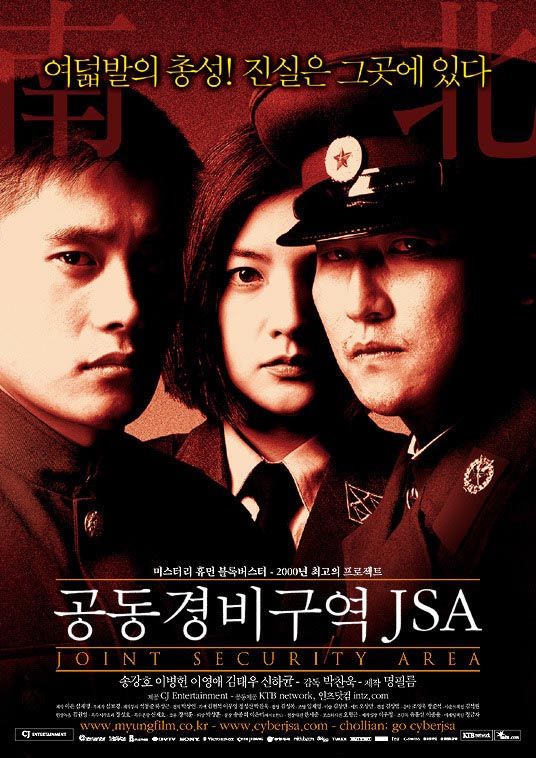
![]()
When Joint Security Area (2000) came out in theaters, it quickly became the most successful Korean film until that point, surpassing Shiri’s immense success the past year. And like Shiri, JSA is also a story about North-South relations and features an already successful cast (even sharing a major actor) that would go onto even greater — even international — success.
Joint Security Area features the talents of Lee Byung-heon, who has been in a number of hugely successful Korean films as well as Hollywood hits like G.I. Joe and RED 2. Playing across from him is Song Kang-ho, an equally successful actor who was recently in the international co-production, Snowpiercer. And between them is Lee Young-ae, who became a household name in China with the success of Jewel in the Palace, in which she played the title character.
And while his cast might have already garnered popularity through their previous film and television work, Joint Security Area would prove to be writer-director Park Chan-wook’s career-making film. Now he is also no stranger to international fame, having since made a cult hit with Oldboy (remade by Spike Lee just last year) and recently getting his first Hollywood directorship with Stoker.
But inasmuch as the rising stars of the cast helped, Joint Security Area like became a hit for similar reasons as Shiri: the North-South story. Let me explain.
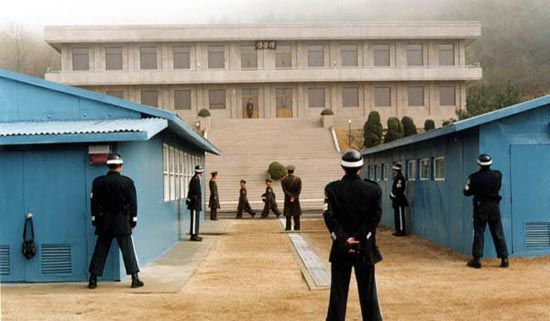
The Republic of Korea was in the throes of a socio-political shift during the turn of the millennium. After decades of military rule, the government was transitioning to democratically elected civilian rule. What’s more, in 1998, for the first time in South Korean history, a liberal candidate, Kim Dae-jung, was elected to the office of the president in a stable government.
One of former president Kim Dae-jung’s best known policies was a policy of engagement with the North, called the Sunshine Policy. And although not without many critics, this policy and the election of its creator reflected a shift in popular attitudes regarding reunification with the North. And that optimism towards establishing positive relations with the North could certainly have had a role in the success of Shiri in 1999, which contained a story of tragic love between a North Korean assassin and a South Korean intelligence agent.
While in Shiri, the North Korean agents are generally depicted as adversarial, even the conflicted female lead played by Kim Yun-jin, Joint Security Area reflects the increasing optimism of the South Korean populace by introducing fully sympathetic North Korean characters. And, while still tragic, then it goes a step further and explores the case of the development of an actual friendship between North and South Korean soldiers stationed at the Demilitarized Zone (DMZ) between the two Koreas. So JSA’s success could be considered representative of the optimism of the Korean public for improved North-South relations at the time.
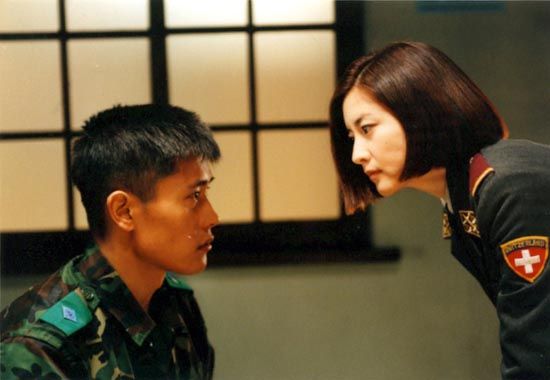
Unlike Park Chan-wook’s later films, Joint Security Area was actually an adaptation of a novel: DMZ by Park Sang-yeon. We start the film version at a Demilitarized Zone guard house in North Korea. Two North Korean soldiers are killed and an injured South Korean sergeant, Lee Soo-hyeok (Lee Byung-heon), is rescued while fleeing back to the South. The North claims an unprovoked assault while the South believes that Lee was kidnapped by the North. This obviously causes a great deal of tension between the Koreas and when an impasse is reached, they decide to call upon the services of the Neutral Nations Supervisory Commission (NNSC) to investigate what happened and resolve the dispute.
As Swiss-Korean NNSC officer Sophie E. Jean (Lee Young-ae) investigates the conflicting stories of Sergeant Lee and the only surviving North Korean officer, Sergeant Oh Gyung-pil (Song Kang-ho), she discovers her witnesses are reluctant to talk. And then she pieces together a story of unexpected friendship between the guards stationed across each other, in countries still technically at war.
The framing of the story in Sophie’s investigation and the eventual result, while not terribly clever as a mystery, does a bit to set up the overarching theme of brotherhood stifled by ideology, allegiance, and fear. The elder hyung, Oh Gyung-pil, is humane and kind-hearted, contrasted against his more ideologically rigid commanding officer, and sets into motion the possibility for Sergeant Lee to establish clandestine correspondence. This is striking contrast to many renderings of North Koreans up to this point as most North Koreans in cinema would never really subvert their country for the sake of brotherhood or love (Shiri and The Spy from 1999 being the only other films to do this).

Similarly, the younger soldiers, Lee, his junior Private Nam Seong-shik (Kim Tae-woo), and Oh’s junior, Jeong Woo-jin (Shin Ha-gyun), all radiate a kind of optimism mixed with fear, representing a popular sentiment of the time.
Sophie stands for the investigation of this potential for rapprochement between the two Koreas, trying to discover what is keeping these nations apart, and discovers that the government institutions do not want truth or even the revelation that friendly relations could exist between them, although the film doesn’t go so far as to explain why. But despite JSA’s tragic end, it still seems to call for its audience to investigate what is truly hindering reunification, including our their the two Koreas’ sins against each other.
And in that goal, I think Joint Security Area succeeds. While some of the scenes primarily involving Sophie and her NNSC peers fall a little flat, in part due to clumsy English language dialog and middling performances, it sets a tone of objectivity. Though the actual investigation itself neither succeeds as a mystery or as a thriller, by creating the theme of sober investigation, it encourages the audience to investigate what is truly dividing the Korean people, perhaps before a hypothetical tragedy can create more problems for reunification.
This story of reconciliation is, of course, further enhanced by a fantastic production. Director Park displays strong flashes of his capacity for visual composition here. From his use of 360 degree spinning point-of-view camera, to his spatial match cuts and dissolves, Park presents the story with a decidedly cinematic language. And the production values of the film match, with beautiful 35mm film stock (an advancement for the industry at the time) as well as a lot of care and detail placed into building a full replica of Panmunjom.
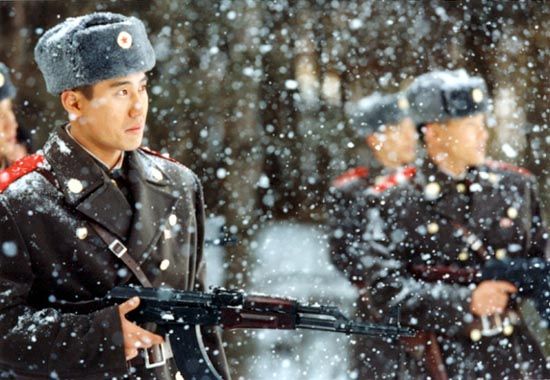
The cast is replete with solid actors, with perhaps the exception of Sophie’s fellow NNSC members. The four soldiers central to the story in particular capture their distinct roles well and share excellent chemistry with each other. Song Kang-ho is especially notable in that he effectively steps away from his commonly comic roles (at the time) for an excellent dramatic turn. Lee Young-ae gets stuck with English dialog and her Korean accent results in a bit of an unconvincing performance when she has to speak English as, being Swiss, you would expect her to have a Swiss French or Swiss German accent instead. Also, you wouldn’t expect Sophie to speak Korean so fluently, given her being raised by her Swiss mother, having acquired it as a second language in school, and never having been to Korea before.
But Lee Young-ae’s language issues and the NNSC actors might be the only really weak spots in a film that otherwise manages to capture both an internal drama about a taboo brotherhood and a greater representation of the popular desire for reunification, or at least rapprochement, of the two Koreas. Even if the mystery and thriller aspects of Sophie’s investigation are diminished, it still effectively acts as a narrative vehicle for the audience and a call to action without being propaganda.
In 2000, Joint Security Area tapped into the desire and optimism of the people of South Korea in regards to the North, combined it with excellent cinematic filmmaking, and became the most successful Korean release at the time. By itself, the film won over five million admissions and did double the business of its closest competitor, Mission Impossible 2. JSA might not have been the first to draw North Koreans in a sympathetic light nor make a huge blockbuster out of it, but in many ways it hit a cultural zeitgeist in a degree that its predecessor wasn’t able to.
Since Shiri and JSA, sympathetic depictions of North Koreans have become common, as we can note from recent films like The Berlin File, The Commitment and Secretly, Greatly. But because of its reflection of South Korean sentiment at the time, Joint Security Area still remains one of the best examples of Koreans dealing with North-South relations through cinema to date. That, as well as the abundance of talent both in front of and behind the camera, makes JSA essential viewing for Korean film lovers. 9/10.
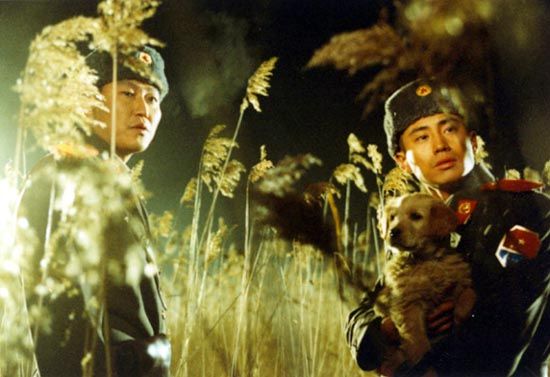
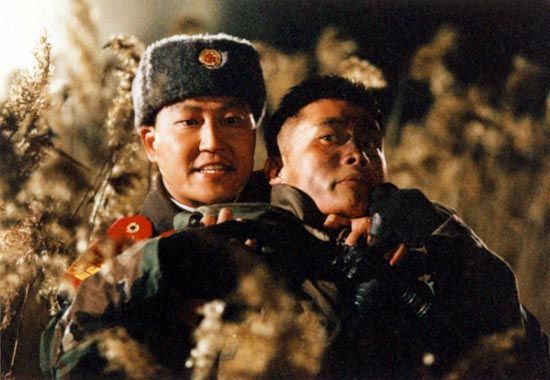
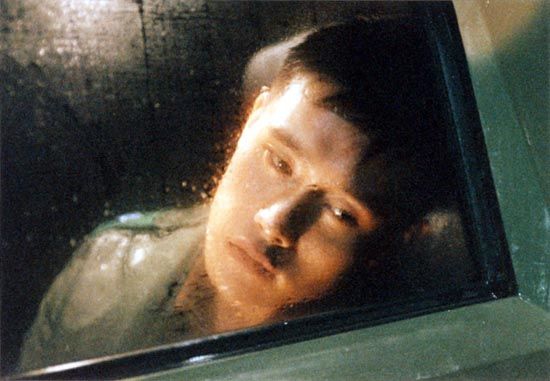
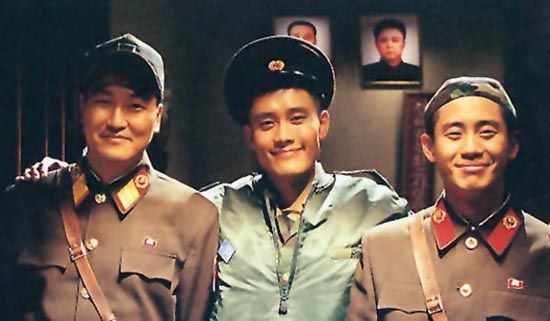
Tags: featured, Kim Tae-woo, Lee Byung-heon, Lee Young-ae, Park Chan-wook, Shin Ha-kyun, Song Kang-ho

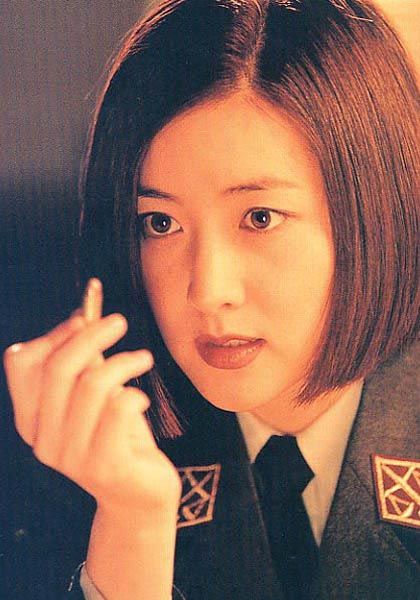

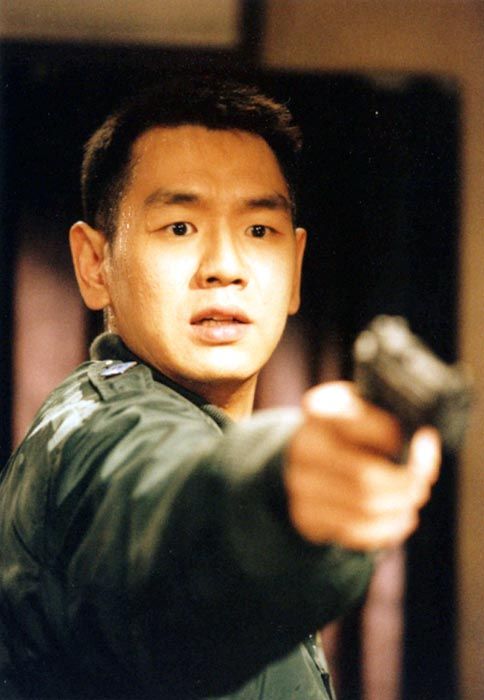
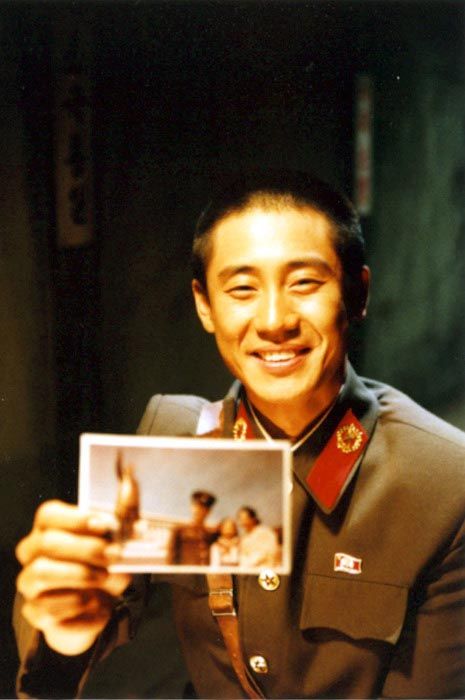
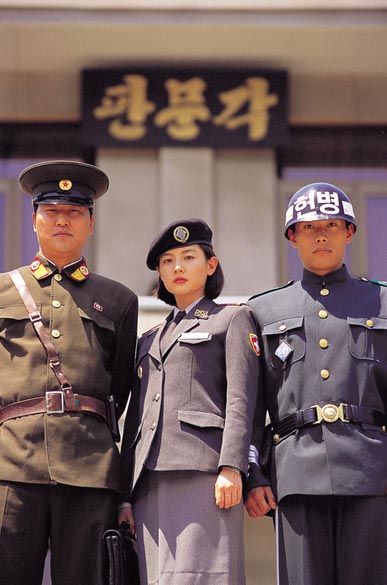
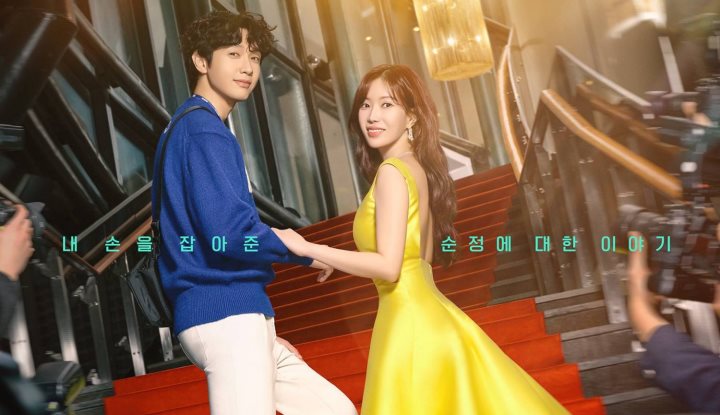
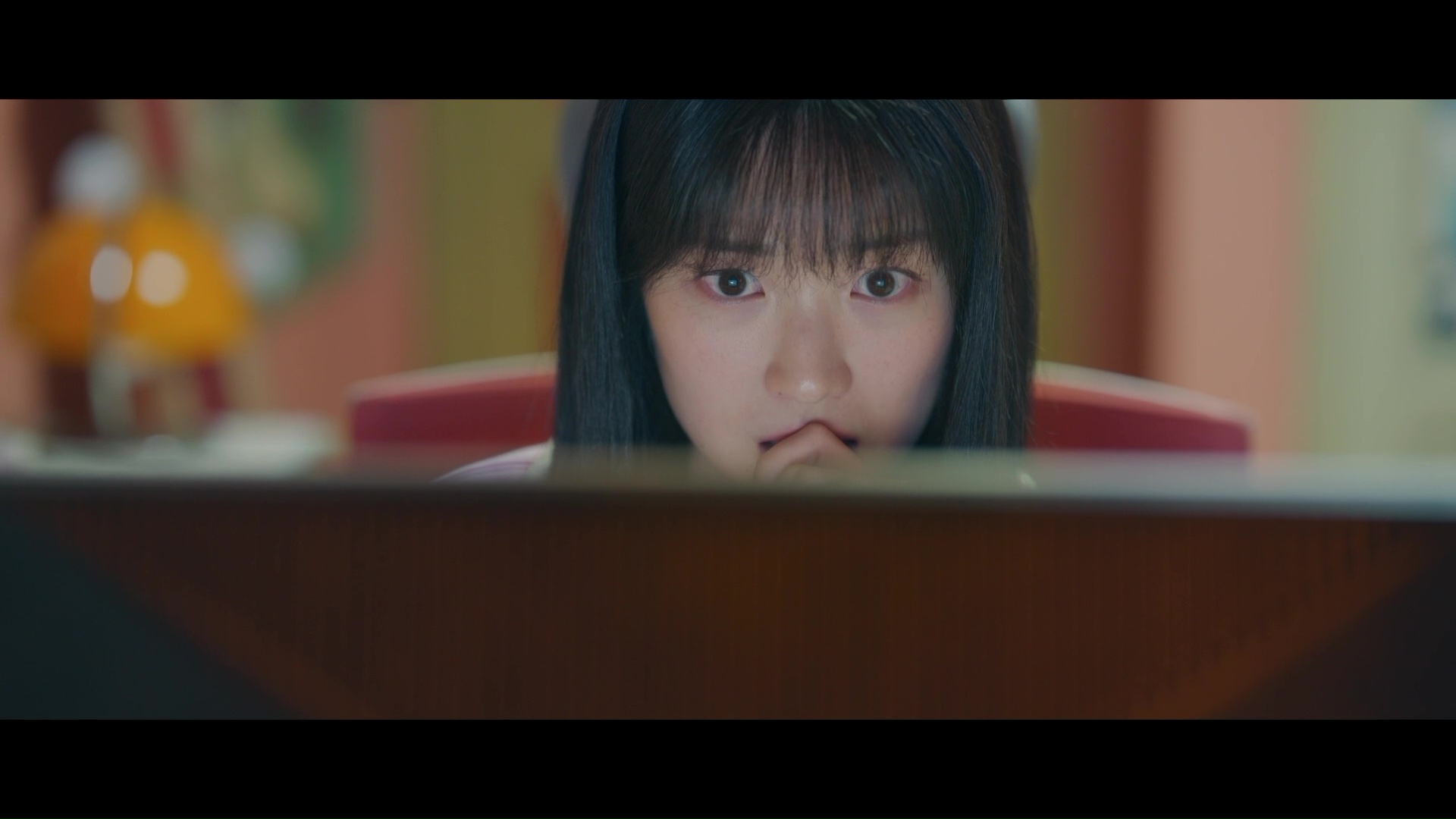
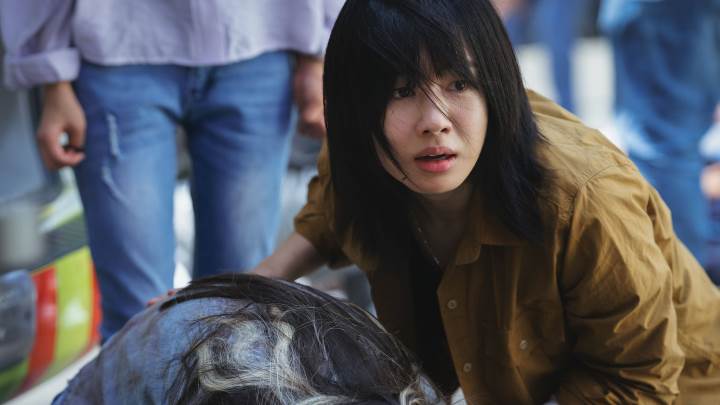

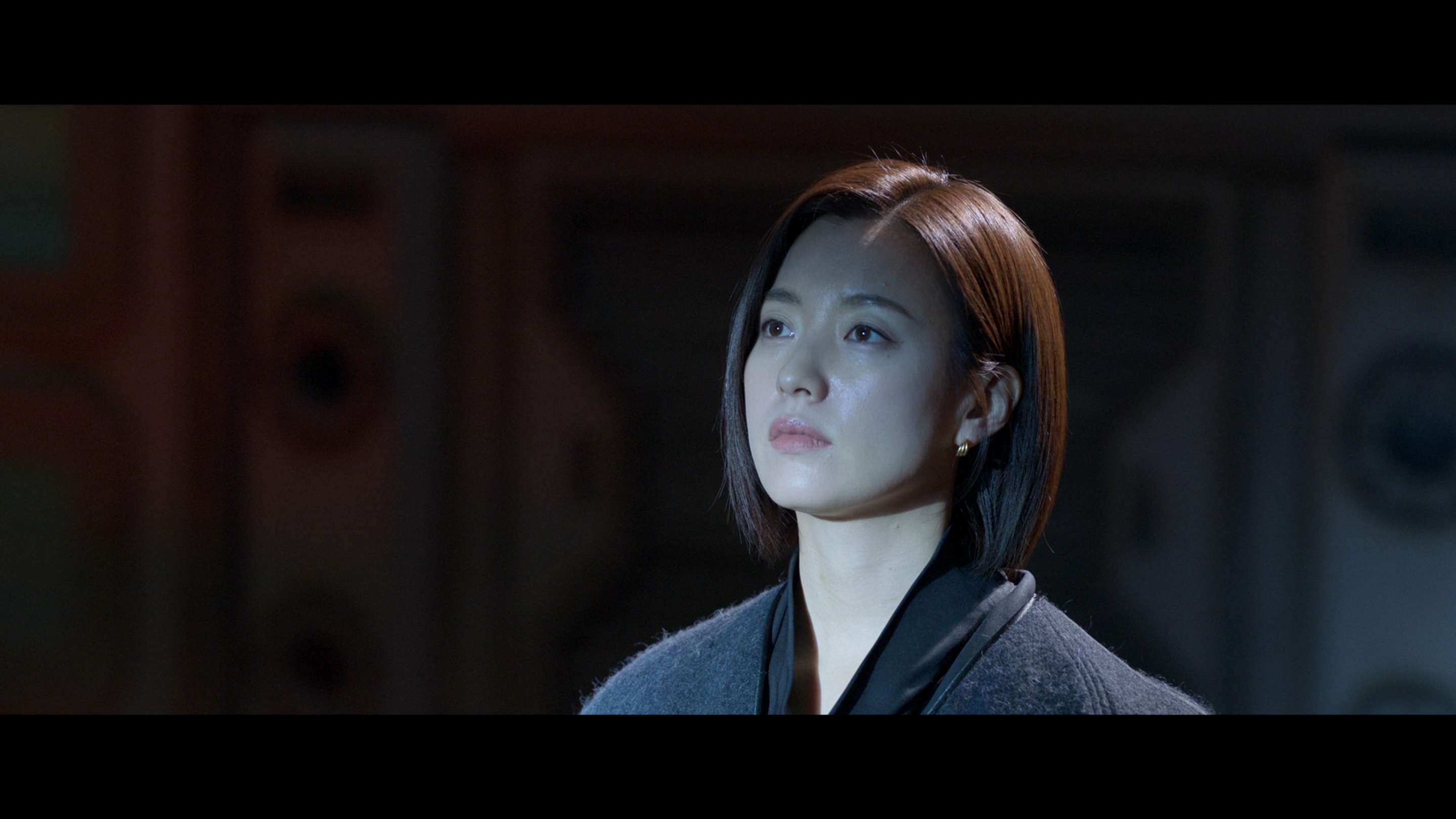
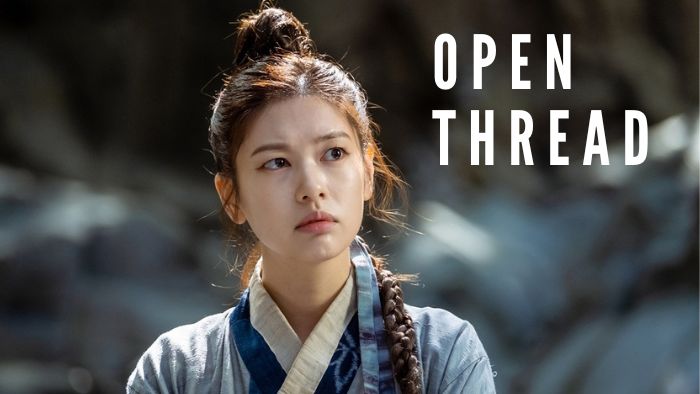
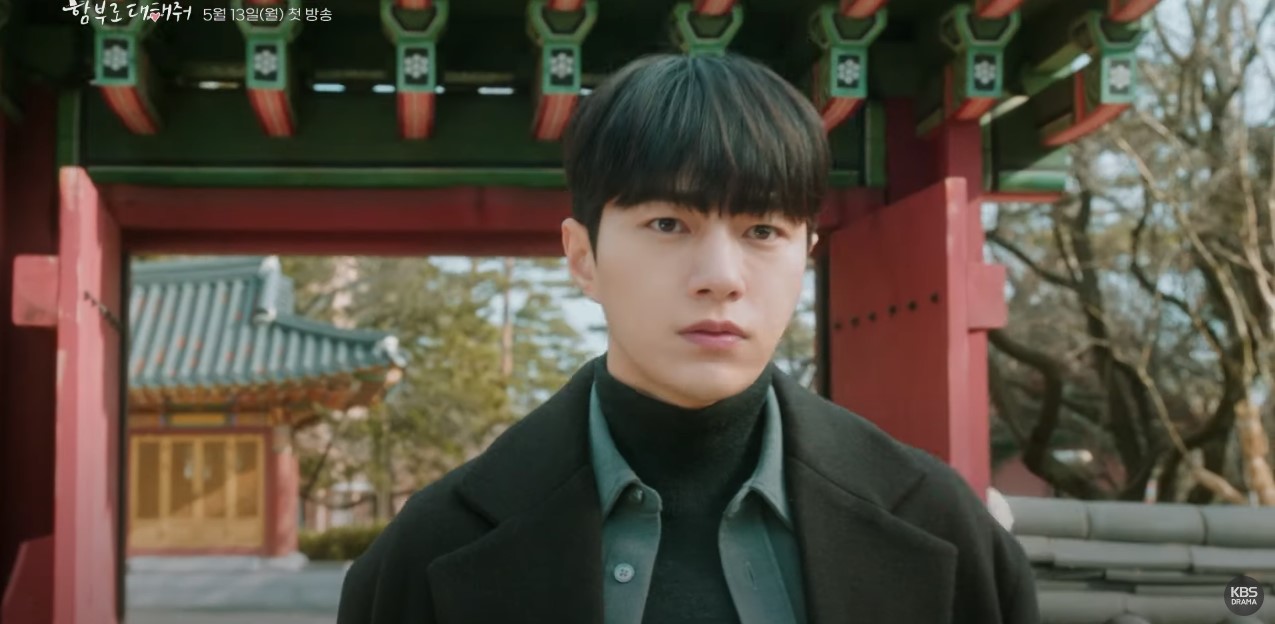
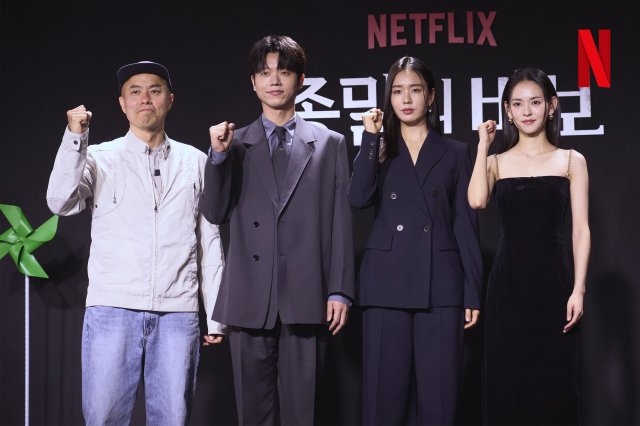
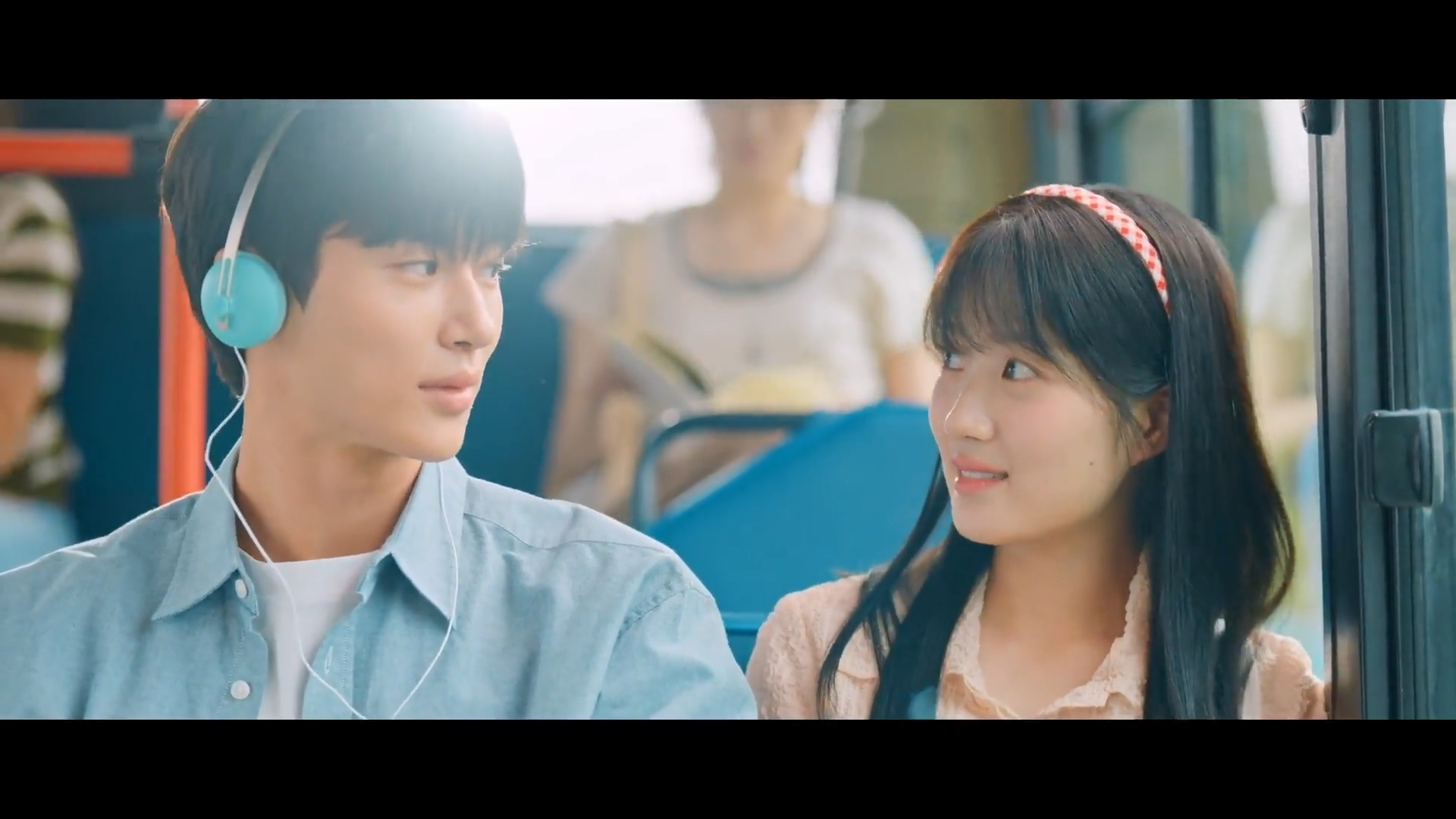
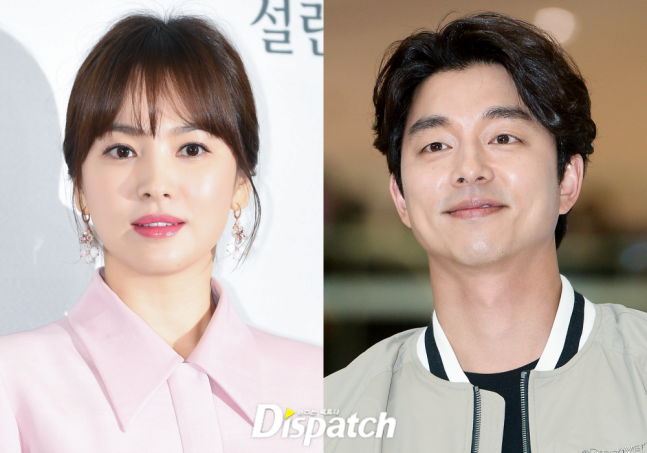
Required fields are marked *
Your email address will not be published. Required fields are marked *
1 Emaan Aysesha
June 3, 2014 at 2:38 PM
This was a really good movie!! Touching and emotional. I cried especially at t he end **SPOILER** when all of them are in he same picture happy and smiling.
War gives nothing. mothers loose their sons and daughters to it.
Required fields are marked *
2 zakin89
June 3, 2014 at 3:19 PM
Thanks for the reminder that I still have to watch this one^^ And soon at that. How I have not watched this yet is a mystery to me since it has some of my favourite actors in it.... Guess this weekend will be dedicated to K-Movies :D
Required fields are marked *
Kiara
June 4, 2014 at 11:58 AM
Same here, I have it but haven't watched it yet.
Thank you as always for the wonderful review <3.
Required fields are marked *
3 David
June 3, 2014 at 3:40 PM
Watched this movie a while back, think it was straight after I first watched old boy. It is the same director but loved the fact that you could still tell it was the same director even though they are such contrasting genres. If you haven't watched it you really should it is a great movie and a staple of Korean cinema. Was looking up highest grossing Korean movies a while back and realised I had watched practically all of them. Having watched quite a few Korean movies, it is always nice to rematch the classics and in my opinion this is really one of the classics of modern Korean cinema.
Required fields are marked *
4 kikidee
June 3, 2014 at 3:45 PM
Oh I love this movie. The idea that if you subtracted the circumstances that required them to be there, these were all just a bunch of ordinary guys. The end is terribly tragic. I always remember and love the scene where the one North Korean soldier is trying to get his dog to cross the border into the South, but the dog won't go.
Required fields are marked *
5 algina
June 3, 2014 at 4:04 PM
I am sorry but this comment has nothing to do with this film but if you could answer my question that would be very helpful.
what is that film called where a girl tries to return a lost engagement ring to a boy but the boy thinks she stole it, but then she pretends that she is his fiance(?) And somewhow she gets entangled with his family. I think it came out in 2005-2007 but I'm not sure. There is also this one scene where she pretends that the boy is hitting her and the boy's dad gets mad at him.
Thank you. :)
Required fields are marked *
Renee
June 3, 2014 at 4:28 PM
I'm sorry that this is adding to the off-topic conversation. I believe that you're talking about Too Beautiful to Lie.
Back on topic, this movie looks really interesting. I really like films that will broach the topic about North-South Korean relationships and even give the "bad guy" good or redeeming qualities. I'm definitely going to watch this, thank you for the review and bringing it to my attention.
Required fields are marked *
6 holli
June 3, 2014 at 5:20 PM
This is the film I always recommend to family and friends when they are curious about Korean movies. Thank you for the accurate and good review. One of my favorite films.
Required fields are marked *
7 nokcha
June 3, 2014 at 5:52 PM
I love this film. My first Korean film was 301/302. And then Shiri, without subtitles. Then I was lucky to get a hold of a copy of JSA with subtitles. Loved the film, but I think, besides the relationship between the four soldiers and some very fine acting, was the storytelling. I think that is something that Park Chan Wook does very well, aside from all of the cinematic stuff. As others have noted, the scenes with Lee Young Ae and her English-speaking partner guy (it's been a long time since I've seen the film) were almost laughable, but this shouldn't take away from a very fine experience.
Required fields are marked *
8 windsun33
June 3, 2014 at 6:59 PM
Oddly, a recent poll showed that only 18% of South Koreans are "hostile" towards North Korea. 60% view NK as a "cooperative partner" - whatever that means. Not sure what to make of it.
Required fields are marked *
kikidee
June 4, 2014 at 4:31 AM
I don't think that's too surprising. I imagine most South Koreans figure that all of the political drama isn't the fault of North Korean citizens, it's the fault of the guy in charge. I was reading this really interesting article about a set of charts that were created to show the ways people from different countries communicate. Among the countries there was a chart for South Korea and one of the communication qualities it had was that South Koreans often describe things as they way they want them to be. That might explain the poll results you saw. The younger generation isn't so sure about reunification, but they'd at least like a friendly relationship with North Korea.
Required fields are marked *
9 mary
June 3, 2014 at 8:23 PM
This movie sounds wonderful. :)
Also made me curious about the "tragic ending" you kept referring to.
Required fields are marked *
10 Shapi
June 3, 2014 at 9:36 PM
Thanks for recap. Was a good film that I chanced upon long time ago though I know very little of the North-South relationship except that Korea was the only homogeneous country on earth divided by ideology. Amidst all the major names I was particularly impressed with Shin Ha Gyun's performance.
Required fields are marked *
11 enkhee
June 3, 2014 at 9:38 PM
Yay! First review of a movie I have actually watched. I had no idea JSA is from the Oldboy director. It's about time I watched that one.
Great review for a great film.
Required fields are marked *
12 rubie
June 3, 2014 at 9:56 PM
Thanks so much for the review on JSA. My very first Lee Byung Hun movie, watched it just before Harmonium in My Memory. Two very different story lines but equally heartwarming albeit the ending in JSA. However JSA in my book will always be the highly recommended Korean Film 101. It has the best bromance ever and wasn't the 4 guys who started it all. ^^
Required fields are marked *
13 Eliza Bennet
June 4, 2014 at 1:15 AM
This is one of my all time S.Korean films. And the acting is simply perfect (by the male actors).
English is my second language and I was not that hung up with the accent issues, however I think LYA's performance was overshadowed by the four male actors.
I actually have visited DMZ and once again applaud
PCW for building an amazing set and also ably capturing the mood there.
Required fields are marked *
14 Kimchi
June 4, 2014 at 2:49 AM
I have forgotten the other actors in this movie but reading the review, I remembered that all of them were really good, all acting heavyweights. It would have been great if Lee Young Ae persevered in her role as an English speaking character. It kind of distracted me.
Required fields are marked *
15 sunnyl
June 4, 2014 at 4:39 AM
Choco pie! (that reminds me of 'Thank you' drama) .
Required fields are marked *
16 ayamas
September 27, 2015 at 6:18 AM
Loike!!!
Required fields are marked *
17 wookieah
November 7, 2016 at 9:18 AM
Came here right after watching JSA for the second time. First time I watched it, I cried at the end, second time I watched it, I was crying throughout the bromance scenes because I knew how it would end.
But that aside, I think what really placed Park Chan Wook on the map with this film was his attention to detail and the structure of the film as well as the way he handled such a fragile topic. Made in 2000, his film challenged the North-South tensions, often compared to its counterpart, Shiri. But in contrast to that, I feel that JSA is completely different from Shiri despite the topic of interest. JSA brings a somewhat realistic touch to the situation, something like this happening is entirely possible and to be honest, I feel that the reason for its realism is attributed to the characters still each being loyal to their own country and the very plausible ending. Having been trained to believe one thing in their lives, the way the various characters reacted towards the end, despite it being tragic, was an ending that actually gave us closure. We want them to be happy but we know it wouldn't work out. Park Chan Wook was able to give the characters such a setup that we feel strongly for all of them and for the camaraderie built between them. His foreshadowing of characters and their possible direction of development is simply powerful and something I am always in awe of.
The star-studded cast, though an added bonus, is not the only reason why one should catch this film. This film is laden with great characters, character development, story structure, plot, cinematography, etc. It truly marked the beginning of Park Chan Wook's auteurship.
Required fields are marked *
18 Qingdao: likes scented candles
August 6, 2023 at 2:54 PM
I watched this movie because I have visited the DMZ and wanted to see how it was portrayed in pop culture. The tension vs commeraderie is always an interesting topic in movies and this one does a good job.
Required fields are marked *